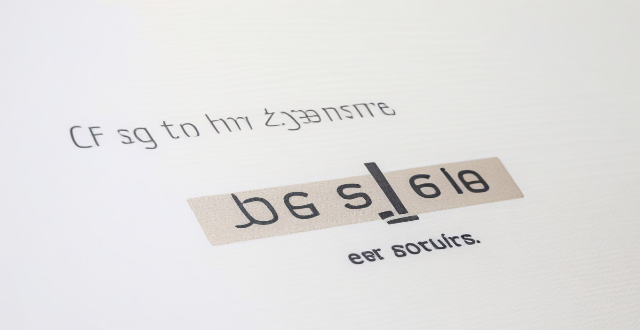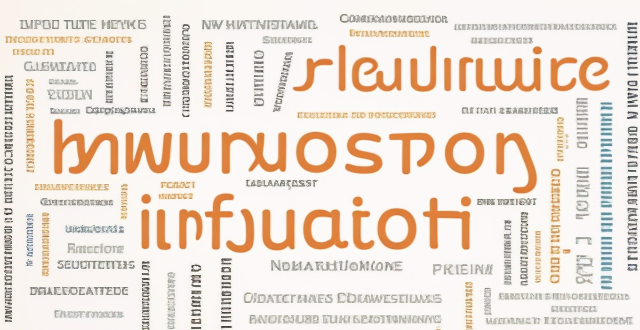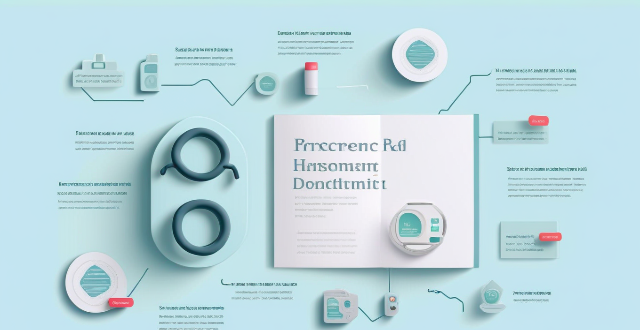Mortgage Insurance

What is private mortgage insurance (PMI) and do I need it ?
Private Mortgage Insurance (PMI) is a type of insurance that protects the lender, not the borrower, in case of default on a mortgage loan. It is typically required when a homebuyer makes a down payment of less than 20% of the home's purchase price. Whether you need PMI depends on factors such as your down payment, credit score, loan-to-value ratio, and type of loan. Consider the cost of PMI and alternatives before deciding to obtain it.

What are the tax benefits of owning a home with a mortgage ?
The tax benefits of owning a home with a mortgage include the ability to deduct mortgage interest, property taxes, and private mortgage insurance premiums. Homeowners may also deduct interest on home equity loans if used for improvements and qualify for energy efficiency tax credits. Additionally, selling a primary residence allows for a capital gains exclusion, and working from home can provide a home office deduction. These benefits are subject to conditions and limitations; consulting a tax professional is recommended to understand their application to individual circumstances.

How does a home equity loan work in relation to my mortgage ?
A home equity loan allows homeowners to borrow against the equity in their property, serving as a second mortgage without requiring refinancing. It offers advantages such as lower interest rates and potential tax deductions but also presents risks like foreclosure and additional debt. Understanding how it works in relation to your primary mortgage is crucial for making an informed financial decision.

Can I pay off my mortgage early without penalty ?
Paying off a mortgage early can save homeowners significant interest, but it's crucial to understand potential prepayment penalties. Mortgages often include clauses that either allow for penalty-free prepayments or impose fees for early payoffs. Homeowners should review their loan agreements, contact lenders for clarification, and assess the financial implications before deciding to pay off their mortgage early. Alternative strategies like refinancing or making smaller extra payments within allowed limits can also be considered to avoid penalties and achieve financial goals.

How does a co-signer affect my mortgage application ?
A co-signer is a person who signs a loan application along with the primary borrower. The co-signer agrees to take on the responsibility of repaying the loan if the primary borrower fails to do so. In this article, we will discuss how a co-signer affects your mortgage application. The credit score of both the primary borrower and the co-signer plays a significant role in determining the eligibility for a mortgage loan. A co-signer with a good credit score can improve the chances of getting approved for a mortgage loan. However, if the co-signer has a poor credit score, it may negatively impact the loan approval process. The income and debt-to-income ratio (DTI) of both the primary borrower and the co-signer are also important factors that lenders consider when evaluating a mortgage application. If the co-signer has a high income and low DTI, it can help strengthen the application and increase the chances of approval. On the other hand, if the co-signer has a low income or high DTI, it may negatively impact the loan approval process. Lenders also consider the employment history of both the primary borrower and the co-signer when evaluating a mortgage application. A stable employment history can demonstrate financial stability and reliability, which can positively impact the loan approval process. If the co-signer has a stable employment history, it can help strengthen the application and increase the chances of approval. The assets and liabilities of both the primary borrower and the co-signer are also taken into consideration by lenders when evaluating a mortgage application. If the co-signer has significant assets and few liabilities, it can help strengthen the application and increase the chances of approval. However, if the co-signer has significant liabilities or limited assets, it may negatively impact the loan approval process. In conclusion, a co-signer can have a significant impact on your mortgage application. Their credit score, income and DTI, employment history, assets, and liabilities are all factors that lenders consider when evaluating a mortgage application. It is important to choose a co-signer who has a good credit score, stable employment history, and low DTI to increase the chances of getting approved for a mortgage loan.

What is the difference between a fixed-rate and adjustable-rate mortgage ?
The text discusses the differences between a fixed-rate and adjustable-rate mortgage. A fixed-rate mortgage has a constant interest rate throughout the loan term, offering stability and predictability in monthly payments. An adjustable-rate mortgage (ARM) has a fluctuating interest rate based on market conditions, with potential savings if rates decrease but also the risk of higher payments if rates increase. The choice between the two depends on personal financial situation, risk tolerance, and long-term goals.

How long does it take to get approved for a mortgage ?
Getting approved for a mortgage is an essential step in the home buying process. The time it takes to get approved can vary depending on several factors, including your financial situation, the type of loan you are applying for, and the lender you choose. In this article, we will discuss the different stages of the mortgage approval process and provide an estimate of how long each stage typically takes. ## Stage 1: Pre-approval Pre-approval is the initial step in the mortgage approval process. During this stage, you will need to submit various documents to your lender, such as pay stubs, tax returns, and bank statements. Your lender will then review your financial information to determine if you qualify for a mortgage and what size loan you can afford. This stage typically takes around 1-3 business days. ### Documents needed for pre-approval: - Pay stubs from the past two months - W2 forms or tax returns from the past two years - Bank statements from the past two months - Credit report ## Stage 2: Underwriting Once you have been pre-approved, your lender will begin the underwriting process. During this stage, your lender will verify the information you provided during pre-approval and ensure that you meet all of their lending requirements. This stage typically takes around 5-7 business days. ### Tasks performed during underwriting: - Verifying employment and income - Checking credit history and scores - Evaluating assets and liabilities - Assessing property value and condition ## Stage 3: Closing If your lender approves your loan application, you will move on to the closing stage. During this stage, you will sign all of the necessary paperwork to finalize your loan. This stage typically takes around 3-5 business days. ### Tasks performed during closing: - Reviewing final loan documents - Signing loan agreements and disclosures - Paying closing costs and fees - Receiving keys to your new home ## Estimated Timeline for Mortgage Approval In summary, the estimated timeline for getting approved for a mortgage is as follows: 1. Pre-approval: 1-3 business days 2. Underwriting: 5-7 business days 3. Closing: 3-5 business days Overall, it typically takes around 9-15 business days to get approved for a mortgage. However, keep in mind that this timeline can vary depending on factors such as your financial situation, the lender you choose, and any potential delays or issues that may arise during the process.

How much life insurance do I need ?
Determining how much life insurance you need is a complex process that depends on your financial situation, income replacement needs, debts and final expenses, current coverage, and consultation with a professional. Assessing your financial needs, calculating income replacement needs, considering debts and final expenses, evaluating current coverage, and consulting with a professional are all important steps to ensure you have the right amount of life insurance coverage for your loved ones.

What are the current mortgage rates for first-time homebuyers ?
The text discusses the current mortgage rates for first-time homebuyers, detailing the various types of loans available, such as Federal Housing Administration (FHA) Loans, Conventional Loans, and Adjustable-Rate Mortgages (ARMs), and providing key points for each type. It also offers tips for first-time homebuyers to consider when looking at mortgage rates, including improving credit scores, saving for a down payment, comparing lenders, considering all costs, and consulting a professional. The text emphasizes the importance of shopping around and comparing offers from multiple lenders to find the best rates and terms for individual financial situations.

What are the closing costs associated with a mortgage ?
Closing costs are fees and expenses associated with finalizing a real estate transaction. These costs vary based on location, property type, and lender requirements. Common closing costs for buyers include loan origination fees, appraisal fees, credit report fees, title search and insurance fees, attorney fees, recording fees, prepaid interest, homeowner's insurance premium, property taxes, and other miscellaneous fees. It is important to budget for these expenses in advance and review all closing documents carefully to avoid any financial surprises during the home-buying process.

Can I get a mortgage with bad credit ?
Getting a mortgage with bad credit is possible but may be more challenging and come with less favorable loan terms. To increase your chances, check your credit score, work on improving it, shop around for lenders, consider alternative options like FHA or VA loans, and be prepared to make a larger down payment.

What is the process of applying for a mortgage ?
The process of applying for a mortgage involves several steps, including determining your budget, checking your credit score, shopping for lenders and loan programs, gathering necessary documents, submitting your application, underwriting and approval, and closing the deal. It's important to carefully review all paperwork and pay closing costs before officially becoming a homeowner.

Can I refinance my mortgage to get a lower interest rate ?
Refinancing a mortgage can lead to lower interest rates and monthly savings, but involves costs like closing fees. Eligibility depends on credit score, equity, and DTI ratio. Consider market conditions and break-even point before deciding. The process includes researching, applying, providing documentation, appraisal, underwriting, closing, and funding. Alternatives include recasting, loan modification, and government programs.

What is the difference between term life insurance and whole life insurance ?
Difference between term life insurance and whole life insurance: - Term life insurance is temporary coverage, no cash value, renewable, and affordable. - Whole life insurance is permanent coverage, accumulates cash value, has level premiums, and is more expensive.

How does sports insurance work ?
Sports insurance is a specialized form of insurance that protects athletes and sports participants from financial losses due to injuries or accidents that may occur during physical activities. It provides coverage for medical expenses, lost wages, and other related costs associated with sports-related injuries. There are several types of sports insurance policies available, including personal accident insurance, liability insurance, equipment insurance, and travel insurance. Sports insurance typically covers a wide range of sports-related injuries and accidents, including medical expenses, disability, funeral costs, legal fees, equipment damage or theft, and travel expenses. The cost of sports insurance varies depending on several factors, including the type of sport, the level of risk involved, the policyholder's age and health status, and the amount of coverage desired.

How can I ensure that I'm getting the best price for my insurance ?
To ensure the best price for your insurance, shop around using comparison websites and direct insurers, consider brokers, increase your excess, pay annually instead of monthly, improve security measures, build a no-claims bonus, review coverage regularly, take advantage of discounts, maintain good credit history, avoid small claims, and renew early. These steps can help you save money on insurance while still ensuring adequate coverage.

How much down payment do I need to buy a house ?
This article discusses the factors affecting the down payment amount for buying a house, including credit score, type of mortgage, and price of the house. It also provides common down payment requirements for different types of mortgages and tips for saving for a down payment.

How does age affect the cost of insurance ?
The article discusses how age affects the cost of insurance, with younger drivers typically paying higher premiums than older drivers. It highlights that health insurance costs can increase as people age due to increased risk factors and the need for more frequent medical care. Life insurance rates may also rise with age, while auto insurance rates may decrease for retired drivers who spend less time on the road. Homeowners insurance costs depend on the condition and value of the home, but older homes may require more maintenance and repairs. The article provides tips for managing insurance costs as you age, including reviewing coverage regularly, maintaining a good driving record, staying healthy, and considering long-term care insurance.

Is there an age limit for buying travel insurance ?
Is there an age limit for buying travel insurance? Most providers do not impose any restrictions based on age, but some policies may have specific requirements or limitations regarding age. When purchasing travel insurance, consider factors such as coverage options, pre-existing medical conditions, adventure sports coverage, cost, and reputation.

How much does sports insurance cost ?
The cost of sports insurance varies based on the type of sport, level of coverage, and individual's age and health status. High-risk sports typically have higher premiums than lower-risk activities. Basic policies may only cover medical expenses and lost wages due to injury, while more comprehensive plans may include additional benefits such as disability coverage and accidental death and dismemberment insurance. Younger athletes may have lower premiums than older ones, and individuals with pre-existing medical conditions or a history of injuries may face higher premiums. Tips for finding the best sports insurance policy include shopping around, considering bundling, and asking about discounts.

What is the process of buying insurance online like ?
The text provides a detailed guide on how to buy insurance online. It outlines the process in eight steps: researching and identifying needs, selecting an insurance provider, getting a quote, reviewing policy details, completing documentation, making payment and receiving policy documents, confirmation and follow-up, and activating coverage. The benefits of buying insurance online include convenience, comparison, transparency, and speed. However, precautions such as ensuring security and legitimacy of the website, and fully understanding the policy terms should be taken.

How do I qualify for a mortgage loan ?
This article provides a detailed guide on how to qualify for a mortgage loan, highlighting key factors that lenders consider such as income, credit score, debt-to-income ratio, employment history, and assets and liabilities. It also outlines steps to take in order to increase chances of success including checking your credit score, calculating your DTI, gathering financial documents, shopping around for lenders, getting pre-approved for a loan, finding a home within budget range, making an offer, and completing the closing process.

Is sports insurance necessary for amateur athletes ?
This article explores the necessity of sports insurance for amateur athletes. It defines sports insurance as coverage against injuries sustained during sports activities, including medical expenses, lost income, rehabilitation costs, equipment damage, and liability coverage. The article highlights the risks and costs associated with sports injuries, noting that 62% occur during recreational activities rather than competitive events. It argues that sports insurance offers peace of mind, financial protection, and access to quality care for amateur athletes but may not be necessary for all. Factors to consider when deciding whether to purchase sports insurance include risk level, personal finances, existing health insurance, and frequency of participation.

Can I buy travel insurance for someone else, like my parents or children ?
The article discusses the possibility of buying travel insurance for someone else, such as family members. It highlights the importance of understanding the specific requirements and restrictions associated with this process. The text provides a step-by-step guide on how to purchase travel insurance for someone else, emphasizing the need to choose the right policy that fits the insured person's needs and provides adequate coverage for their trip.

How does credit history influence insurance rates ?
The text discusses how credit history influences insurance rates. Insurers use credit history as a predictor of future claims and risk, with studies showing that individuals with poor credit histories are more likely to file claims and cost insurers more money than those with good credit histories. Several factors can affect insurance rates based on credit history, including payment history, amount owed, length of credit history, and types of credit used. Maintaining a strong credit history can potentially save money on insurance premiums and demonstrate financial responsibility to insurers.

Are there any tax benefits associated with buying certain types of insurance ?
The text discusses the tax benefits associated with buying various types of insurance, including health insurance, life insurance, disability insurance, long-term care insurance, and homeowner's insurance. The benefits include tax-deductible premiums and tax-free death benefits for certain policies. It is emphasized that consulting a tax professional or financial advisor is crucial to understand how these benefits apply to individual situations, as tax laws vary by country and can be complex.

What happens if I miss a mortgage payment ?
Missing a mortgage payment can lead to immediate financial penalties, negatively impact your creditworthiness, and put your home at risk in the long term. It's essential to communicate with your lender early and explore all possible options to mitigate the consequences before they spiral out of control.

Are pre-existing medical conditions covered by travel insurance ?
Travel insurance coverage for pre-existing medical conditions varies by policy and provider. Factors influencing coverage include the type of policy, deductibles and limits, waiting periods, and disclosure of information. Some policies offer limited or comprehensive coverage for these conditions, while others exclude them altogether. It is crucial to research different policies and consult with an insurance professional to find the best coverage for your individual needs.

What role does the insurance industry play in mitigating climate change ?
The insurance industry plays a crucial role in mitigating climate change through various mechanisms. They assess and price risks associated with climate change, providing financial incentives for mitigation, invest in sustainable projects, apply stricter underwriting criteria for high-emission industries, collaborate on research efforts, innovate insurance products, educate clients about climate risks, lobby for climate policies, and support reinsurance to share risks globally and back catastrophe bonds. By integrating climate considerations into their business models, insurers can drive progress toward a more sustainable future.

How does having a pre-existing condition impact my ability to buy insurance ?
The text discusses the impact of pre-existing conditions on insurance purchase, including eligibility, cost, waiting periods, exclusions and limitations. It also provides tips for buying insurance with a pre-existing condition such as researching options, disclosing relevant information, considering government-sponsored plans, and working with an insurance broker.